Slang terms for old money
I went into a shop for half a pound of PG Tips. The shop assistant said "that'll be half a dollar". I looked in my pocket and found one bob, two tanners and two joeys. I had just enough.
In the pre-decimal era half a dollar was half a crown, a bob was a shilling, a tanner a sixpence and a joey a threepenny bit.
These are a few of the most common slang terms for pre-decimal coins:
- Coppers - farthing, halfpenny, penny coins
- Joey - 3d or threepence
- Tanner - 6d or sixpence
- Bob - one shilling
- Half a dollar - half a crown
- Dollar - five shillings
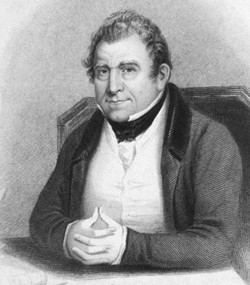
Joey for threepence
George Orwell used the term 'Joey' in 'Keep the Aspidistra Flying'. At the beginning of chapter one, Gordon Comstock contemplates his last fivepence halfpenny - one 'Joey', two pennies and a halfpenny.
The original nickname 'Joey' was for a groat, worth fourpence. But since the groat disappeared the name transferred to the silver threepence.
'Joey' is after Tory MP, Joseph Hume. He campaigned for the re-introduction of the groat, because he was tired of London cabbies saying they hadn't change for a sixpence and keeping the change as a tip. Now the customer could give the cabby a groat worth only four pence. The cabbies took their revenge by calling the groat a 'Joey'.[1]
Bob for shilling
The term bob for shilling goes back to the 1700s, but its origin is unclear.
Tanner for sixpence
The most likely explanation is that it comes from John Sigismund Tanner. He was the engraver at the Royal Mint who designed the sixpence for the reign of George II. Although the first sixpences dates from 1551 in the reign of Edward VI.
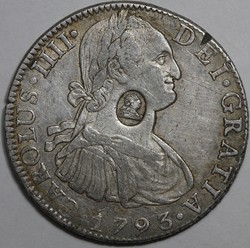
Dollar for five shillings
The origin of the term 'dollar' for five shillings goes back to the late 1700s. The Royal Mint had a shortage of silver. To keep enough money in circulation, the UK imported Spanish eight-real pieces (pieces of eight) which were also known as Spanish Dollars. The Mint over stamped them with a portrait of George III and issued them with a value of 4s 9d (their bullion value). The Mint later revalued them to five shillings. Spanish dollars were then over stamped with a new design and called 'Bank of England dollars'. [2]
The original US dollar was based on the Spanish dollar. It was the same size and weight and also worth five shillings.
In the twentieth century five shilling pieces, known as crowns, were for commemorative issues only. But the term 'dollar' for five shillings continued. A half crown was worth 2s 6d. It became a half dollar. For comparison, a US dollar was worth 7s 2d in 1964. (See Foreign currency in the 1960s).
South African slang
In the 1920s, South Africans called a threepenny bit a 'tickey' and a florin a 'Scotsman'. [3]
Older terms
These are a few other slang terms in use in Victorian England
- Farthing - 'fadge', 'fidlder', 'gig', 'quartereen'
- Halfpenny - 'brown', 'mazda', 'saltee', 'mag', 'posh', 'rap'
- Penny - 'copper', 'saltee', 'winn'
- Twopence - 'deuce',
- Threepence - 'thrums', 'thrups'
- Groat (fourpence) - 'bit', 'flag', 'Joey'(*)
- Sixpence - 'bandy', 'bender', 'cripple', 'downer', 'fye buck', 'half a hog', 'kick', 'snid', 'sprat', 'sow's baby', 'tester', 'tizzy'
- Shilling - 'beong', 'bob', 'breaky leg', 'deaner', 'gen' (from argent meaning silver?), 'hog', 'levy', 'peg', 'stag', 'teviss', 'twelver'
- Half a crown - 'alderman', 'half a bull', 'half a tusheroon', 'mazda caroon'
- Crown (5 shillings) - 'bull', 'caroon', 'cartwheel', 'coachwheel', 'thick-un', 'tusheroon'
- Ten shillings (half sovereign) - 'half a bean', 'half a couter', 'mazda poona', 'half a quid'
- Half a guinea - 'half a ned' [disappearing in Victorian England as the guinea as a separate coin was disappearing]
- Sovereign (£1) - 'bean', 'canary', 'couter', 'foont', 'goldfish', 'james poona', 'portrait', 'quid', 'thick-un', 'yellow-boy'
- Guinea - 'ned'
Source: The Slang Dictionary Or the Vulgar Words, Street Phrases, and Fast Expressions of High and Low Society by John Camden Hotten, published 1864
(*)'Joey' was slang for a groat rather than a threepenny bit in Victorian England
A few more archaic terms are:
- Thin - sixpence
- Quidlet instead of quid - one pound
Terms for amounts in pounds
- Quid - one pound
- Nicker - one pound
- Fiver - five pounds
- Tenner - ten pounds
- Score - twenty pounds
- Pony - twenty-five pounds
- Monkey - five hundred pounds
- Grand - one thousand pounds
Most of these are well known today. The terms 'monkey' and 'pony' were less well known in the 60s. An article in the Daily Express explained them as 'racing slang'. The author relayed a story of a punter who telephoned his bookmaker to place a bet of a monkey each way on a horse thinking the term meant twenty-five pounds. Only to find out he had won a fortune when the horse finished first. The bookmaker sent him a complimentary ticket to London Zoo, so that he could learn the difference between a monkey and a pony. [4]
Rhyming slang
There are a number of rhyming slang expressions for money, some of which derive from other slang terms. For example 'bicycle spanner' for 'tanner'.
- Abergavenny - penny
- Kilkenny - penny
- Camden Town - for brown also meaning penny
- Coal heaver - a striver - meaning penny
- Bicycle spanner - tanner - meaning sixpence
- Engineer's spanner - tanner
- Lord of the Manor - tanner
- Door knob - bob - meaning shilling
- One for his nob - bob
- Kettle on the hob - bob
- Rogue and villian - shillin'
- Thomas Tilling - shilling (1)
- Oxford scholar - dollar - meaning five shillings
- Jack Tar - Half a bar - ten shillings
- Jimmy O'Goblin - sovereign (a gold coin worth one pound)
- Lost and found - pound
- Merry go round - pound
- Plymouth Sound - pound
- Beehive - five pound note
- Jack's alive - five pound note
- Lady Godiva - fiver - five pound note
- Macaroni - pony - twenty-five pounds
(1) Thomas Tilling was a London bus company founded in 1846.
Decimal slang
Once pounds, shillings and pence went out there was less appetite for slang words for coins. Someone in the press suggesed a 'Wilson' for the new 50p, but it never caught on. [5]
The one that did stick for a time was 'ten-bob bit'. The 50p stood in for ten shillings from 1969 to 1971. According to the Daily Express, pubs in the West Country banned the ten-bob bit in 1969. I wonder how long they kept that up?[6]
Keith Waterhouse used the term 'tiddler' for the new halfpenny in 1971.[7]
The only slang term that stuck was 'pee' for pence, as in 10p.
References
[1] 'Notes and queries: a medium of inter-communication for literary men, artists, antiquaries, genealogists etc' second series volume 10 July-December 1860, page 171.
[2] 'Coins through the ages' by Laurance Brown, published 1961, Bonanza Books, New York, page 95
[3] Letter to the Observer newspaper, published on 4 December 1921.
[4] 'If you want a tip learn the language' by Clive Graham, published in 'The Daily Express' 2 December 1964, page 12.
[5] 'A history of modern english coinage: Henry VII to Elizabeth II' by James Mackay, pubished by Longman 1984, page 192
[6] 'That 10s thing is banned', on page 1 of the Daily Express, 24 October 1969
[7] 'Give more, get less' by Keith Waterhouse, published in the Daily Mirror 22 February 1971, page 6
By Steven Braggs, January 2020, additions February 2020 and November 2022
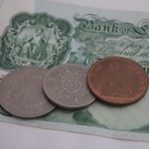
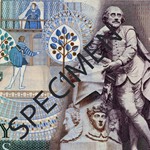
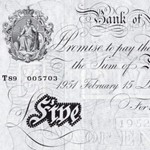
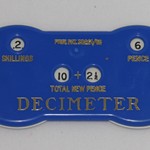
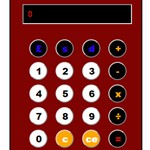
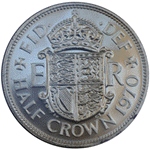
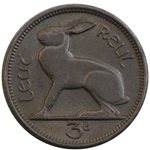
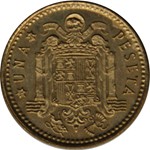
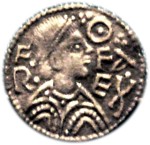
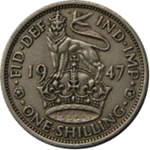
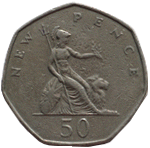
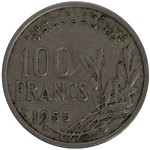


Comments
We used to call half a crown 2n6